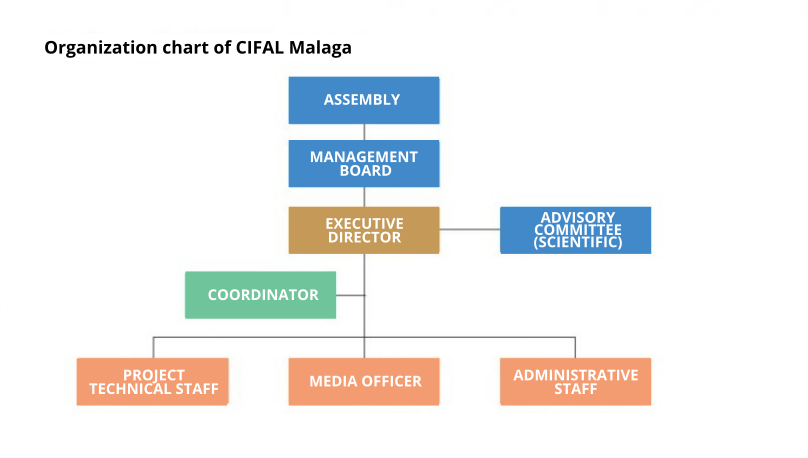About us
CIFAL Málaga, Centro Internacional de Formación de Autoridades y Líderes, es un centro dependiente del Instituto de las Naciones Unidas para la Formación Profesional y la Investigación (UNITAR). CIFAL Málaga , como el resto de los centros que forman parte de la Red Global CIFAL, tiene como objetivos:
- Facilitate the transfer of knowledge, experiences and best practices between representatives of the public sector, representatives of the private sector and leaders of civil society.
- Foster cooperation and the development of multisectoral associations.
- Provide opportunities that lead to collaboration between cities.
- Contribute to the development of local and national strategies.
Each of our learning and training activities includes a variety of learning resources that combine content, hands-on exercises, homework, quizzes, teamwork, interactive activities, and tutorials. All activities are designed in a practical and interactive way. Depending on the needs of the beneficiaries and the objectives of the training, the activities are offered in different formats: face-to-face, virtual, or a combination of both.
UNITAR and the Malaga City Council signed in 2018 a non-regulatory International Agreement for the establishment of CIFAL Malaga. Subsequently, in March 2019, the CIFAL Málaga Association was established, as a non-profit, non-governmental entity, through which its first Board of Directors was elected and the statutes that govern it were approved.
The aims of the Association are as follows:
- To support the activities of the United Nations Institute for Training and Research (UNITAR);
- To carry out training, informative and awareness-raising activities;
- To support the activities of International Training Centre for Authorities and Leaders affiliated to UNITAR that offer training opportunities and exchange of good practices, tools and strategies between local and regional authorities, international agencies, private sector and civil society;
- To support local actors by improving their decision-making processes.



